CP Advanced Imaging
is a multi-modality diagnostic
imaging center

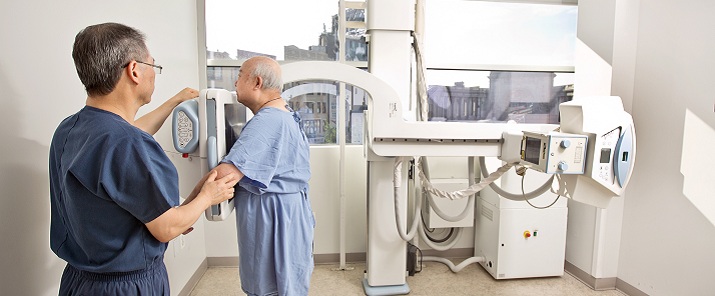
Digital X-Rays
An x-ray (also called a radiograph) is the most commonly performed medical imaging test. Imaging with x-rays involves exposing a part of the body to a small dose of radiation to produce a digital image.
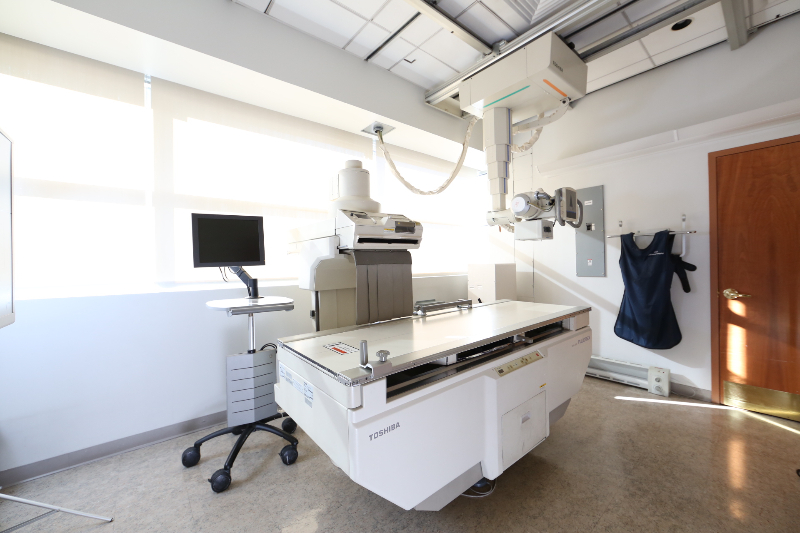
Fluoroscopy
Fluoroscopy is a special x-ray technique that makes it possible to see internal organs in motion. Through a series of consecutive x-rays, a video of the organ of interest is generated.
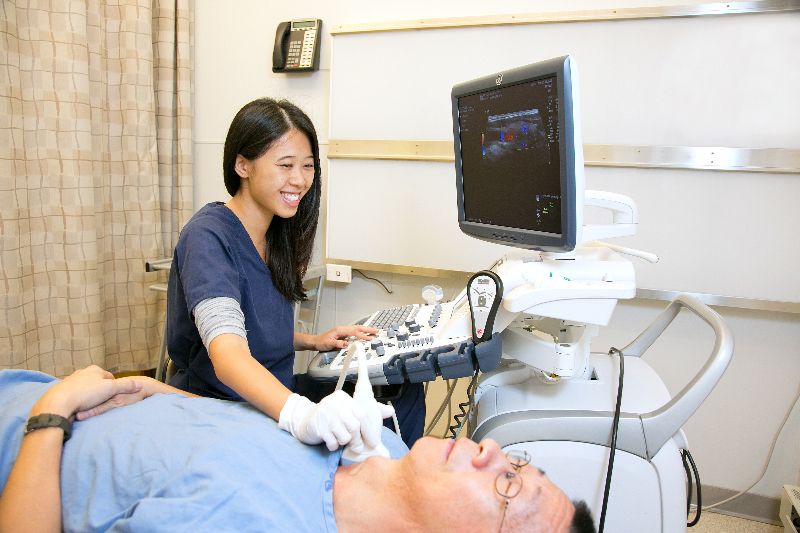
Ultrasound
Ultrasound scanning, also called “ultrasound imaging” or “sonography,” uses high-frequency sound waves to produce images of the body. Ultrasound does not use ionizing radiation and does not involve x-ray exposure.
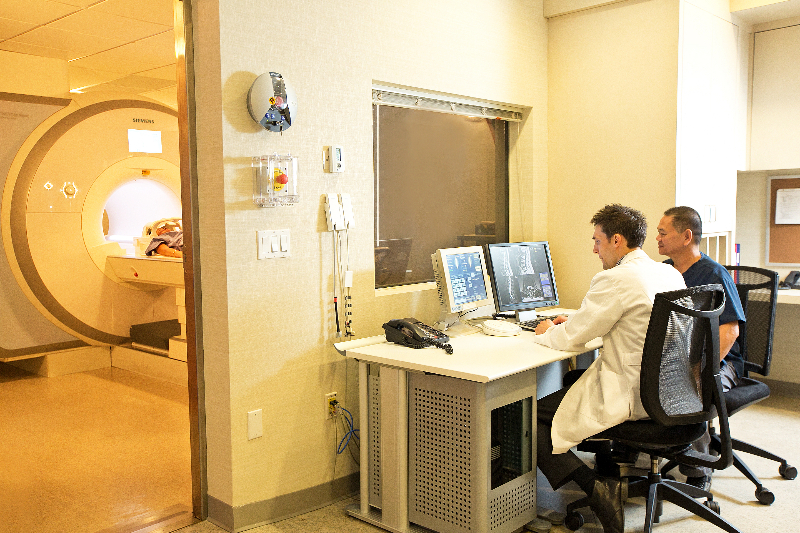
MRI
Magnetic Resonance Imaging provides highly detailed pictures of anatomy and pathology to help evaluate a wide range of conditions anywhere in the body. MRI uses a strong magnetic field and radiofrequency pulses to produce clear and detailed pictures. MRI does not use ionizing radiation and does not involve x-ray exposure.
Liver Elastography
Ultrasound-based liver elastography is a noninvasive test to evaluate tissue stiffness due to underlying liver disease. Using Shear Wave technology, elastography allows your doctors to determine your risk of liver fibrosis (scarring) and track response to treatment for liver disease. Ultrasound elastography allows us to evaluate the liver for masses or changes of cirrhosis and provides an alternative to liver needle biopsy.
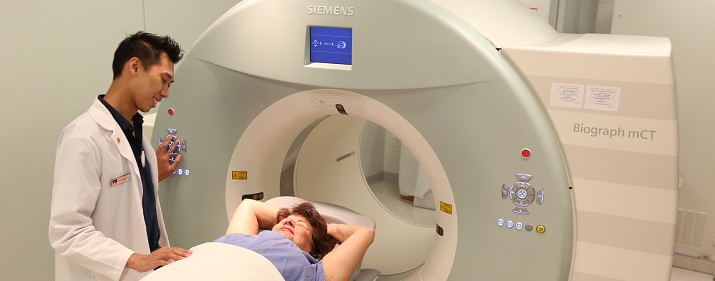
PET/CT
PET/CT is an advanced imaging test that offers information on both tissue metabolism and structure that is not attainable using other conventional imaging procedures.
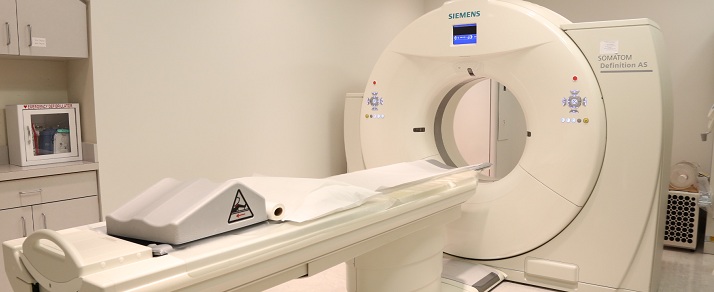
CT Scan
A Computed Tomography or CT scan is an imaging test that combines computers and 360-degree x-rays to produce highly detailed images of the body. CT scans are one of the best tools to look for sources of pain in the abdomen or pelvis, to find the causes of breathing difficulty, to show the extent of cancers, or to demonstrate problems of the skeleton.
MR Angiogram
Magnetic Resonance Angiography (MRA) provides highly detailed pictures of blood vessels using a strong magnetic field and radio frequency pulses. MRA does not use ionizing radiation and does not involve x-ray exposure.
Thyroid Biopsy
During a fine needle aspiration biopsy of the thyroid, a small sample of cells is removed from the thyroid gland. Samples of the cells are put on a slide for review by the pathologist. The pathologist will examine the cells under a microscope to determine if they are benign or cancerous.
Womens Imaging
CP Advanced Imaging understands the importance of early detection and preventive care. We want to inspire women to be proactive about their health. Our women’s imaging services specialize in breast imaging, imaging of the pelvis and reproductive organs and diagnosing osteoporosis. Our caring staff and on-site radiologists are committed to providing exceptional care to our patients.
Low Dose CT Lung Screening
CT lung screening is a CT scan of the lungs using a low radiation dose technique. It is a screening test which is performed before symptoms begin and in the earliest stage of any potential lung cancer.
CT Angiogram
A Computed Tomography Angiogram or CTA scan is an imaging test that combines computers and 360-degree x-rays to produce highly detailed images of the blood vessels of the body.
CT Virtual Colonoscopy
CT colonoscopy, also known as virtual colonoscopy, is a specialized CT scan which provides a detailed view of the colon. Virtual colonoscopy is minimally invasive and does not require anesthesia unlike conventional colonoscopy.
Breast MRI
Breast Magnetic Resonance Imaging provides highly detailed pictures of the breast to help evaluate a wide range of conditions. MRI uses a strong magnetic field and radiofrequency pulses to produce clear and detailed pictures.
Bone Densitometry
Bone density scanning, also called dual-energy x-ray absorptiometry (DXA) or bone densitometry, is an enhanced form of x-ray technology that is used to measure bone loss and to predict risk of bone fracture.
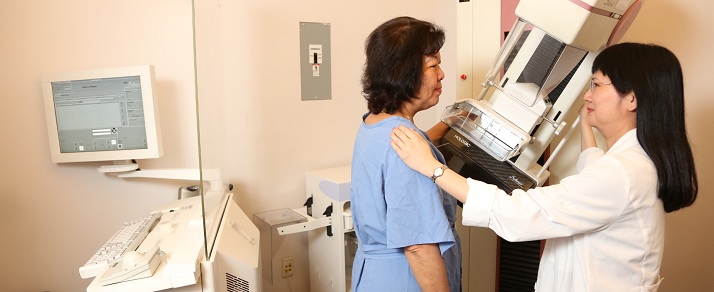
Digital Mammography
Mammography is a low-dose x-ray examination of the breast. A mammogram is used in the early detection and diagnosis of breast diseases. Current national guidelines recommend annual screening mammography for all women age 40 and over.
3D Mammography Breast Tomosynthesis
Breast tomosynthesis or 3D mammography is an FDA approved advanced technology that can improve detection of breast cancer, particularly in women with dense breast since it provides a clearer image of dense breast tissue.
Speak to a professional
Call: (212) 219-9135
Frequently Asked Questions
What are your normal business hours?
Will I need an appointment?
How long will it take to receive my results?
If you would like your results on the same day, please alert the staff at the time of registration.
How should I prepare for my visit?
- Fasting (not eating any or certain foods) for several hours or even overnight
- Drinking more or less water than usual
- Avoiding certain medications or vitamin and herbal supplements prior to testing. It is important to talk to your doctor about the medications you are currently taking (including supplements and other over-the-counter medications) before making changes prior to having laboratory tests performed.
What to Expect
When visiting a lab, you should bring:
- A photo ID (for example, a driver’s license or employee identification badge)
- A health spending account card, credit card, or account debit card
What to Expect From Your Visit
CP Advanced staff will make the specimen collection process as safe, quick, and comfortable as possible while safeguarding your dignity and privacy.

